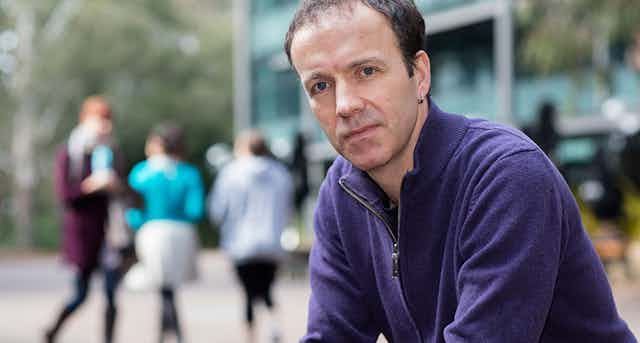Last week, the ABC’s Four Corners investigated the alleged toxic culture towards women at Sydney’s elite boys Cranbrook School.
The investigation covered harassment and bullying of female staff and other bad behaviour. After further developments, the headmaster, Nicholas Sampson, had resigned by week’s end.
The scandal has brought back a debate about whether single-sex schools are fit for purpose and the culture they foster.
To discuss this and what leads some men and boys to treat women badly and too often violently, we’re joined by Michael Flood, professor at the School of Justice at Queensland University of Technology. Flood researches masculinity and gender justice, interpersonal violence and engaging men in violent prevention.
On the Cranbrook revelations, Flood says:
It certainly didn’t surprise me because this is hardly the first time that stories of sexual harassment and sexism and the sexual objectification of girls and women have emerged, both from schools in general and from elite boys’ private schools in particular.
While the issue is prevalent throughout society, Flood explains why elite institutions have particular troubles.
Certainly, there’s very good research to show that you get higher levels of sexual violence and domestic violence in contexts where there are norms of entitlement, norms of being born to rule.
You also get high levels of sexist and harassing and violent behaviour in cultures where there’s a code of silence, a code that you don’t dob, […] you don’t tell on your mates, you cover up and protect your mates.
On getting transparency in schools, Flood describes why it’s a hard task.
Some schools operate as closed shops where they don’t want to be held accountable for poor behaviour by students. And when that behaviour does occur, it’s very tempting for the leaders of those institutions to portray this as the function of a few bad apples, you know, kind of isolated incidents.
While one might expect, after all the recent community debate, that young men would have better attitudes to women than their elders, flood explains why that isn’t the case,
We can’t simply assume that young men have better attitudes then older generations of men or other people, because the fact is they don’t. So, for example, the highest rates of sexual violence offending in Australia are among young men 15 to 19.
Young men, in their late teens and early 20s, in fact, often have poorer attitudes to sexual violence and domestic violence than slightly older cohorts of men, then men in their late 20s, men in their 30s and 40s
What can be done to combat these behaviours in our young men?
Parents have a vital role to play. And funnily enough, fathers have a particularly vital role to play. And, you know, the first thing I think that parents in general and fathers in particular can do is role model equity, role model respect.
A second thing that I think parents can do is have those conversations and they […] can be awkward or embarrassing conversations, but have conversations about pornography, have conversations about relationships, have conversations with […] older children and young people, about consent and respect. And so on.

